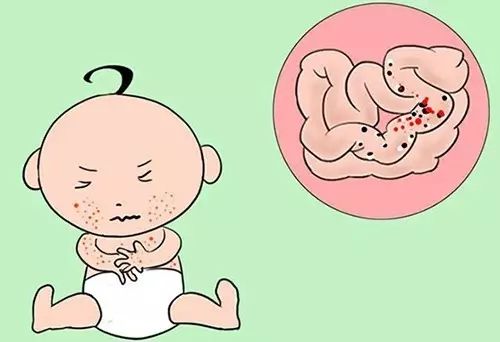With the rise of gluten-free and dairy-free diets over the past few years, food allergies and intolerances appear to be surging now more than ever. Celebs like Kourtney Kardashian and Kate Hudson have famously stripped their diets of common allergenic foods in the name of health, and the public seems eager to follow suit. Have we become better at detecting food allergies and intolerances, or are they just the latest trend?
过去几年来,随着无麸质饮食和无乳制品饮食的兴起,食物过敏和食物不耐受案例似乎比以往任何时候都多。考特尼·卡戴珊和凯特·哈德森等名人打着健康的旗号,不再摄入常见的致敏食物,而普通人似乎都急于效仿。是我们更擅长发现食物过敏和食物不耐受了吗?亦或者这只是最新的趋势所在?
A new study published in JAMA Network Open suggests many Americans' food fears may be "unfounded." After reviewing data collected from over 40,000 U.S. adults, the researchers found about 19% of adults believed they had a food allergy-and only about 10% actually had one.
JAMA Network Open期刊新发表的一项研究表明:很多美国人的食物恐惧可能都是"毫无依据的"。看完4万多名美国成年人的数据后,研究员发现:19%的成年人认为他们有食物过敏--但实际上只有10%的人患此症状。
"While we found that one in 10 adults have [a] food allergy, nearly twice as many adults think that they are allergic to foods, while their symptoms may suggest food intolerance or other food-related conditions," lead study author Ruchi Gupta, of the Northwestern University Feinberg School of Medicine, explained in a press release.
"虽然我们发现10%的成人食物过敏,但却有近2倍的成年人觉得他们患有食物过敏(实际上,他们的症状只是食物不耐受或其它与食物相关的疾病的表现),"西北大学伯格医学院、研究的首席作者鲁敇·古普塔在一次新闻发布会上解释道。
While these adults may actually believe they have a food allergy, the symptoms they reported were not reflective of true allergic reactions. Most likely, they were experiencing other unwelcome symptoms-like diarrhea, abdominal pain, or bloating-from a food sensitivity or intolerance. Food allergy symptoms are caused by an immune system response; symptoms of intolerances or sensitivities are not. Someone with a food intolerance is missing a digestive enzyme that would break down a part of the food. Food sensitivities aren't as clearly defined, but they usually involve an upset stomach after eating a specific food.
虽然这些成年人或许真的觉得自己患食物过敏,但他们自己所描述的症状实际并不是过敏的真正反映。他们很有可能是因为对食物敏感或食物不耐受,才表现出这些难受的症状--比如腹泻、腹痛或腹胀。与食物不耐受或食物敏感的症状所不同的是,食物过敏症状是由免疫系统反应引起的。患有食物不耐受的人体内缺少一种可以分解部分食物的消化酶。食物敏感的定义尚不明确,但通常指的是,摄入特定食物之后,胃部不适。

The body's immune system overreacts to proteins that [their bodies perceive as] unhealthy and attacks them as a threat to the body. The reaction to this faulty immune response leads to symptoms like itching, tightening of your throat, or shortness of breath."
身体的免疫系统会对不健康的蛋白质过度反应,并将其视作身体威胁而对其进行攻击。这种错误的免疫反应会导致皮肤发痒、喉咙紧缩或呼吸短促等症状。
At worst, allergic responses can result in a life-threatening reaction called anaphylaxis, which requires immediate medical attention. On the other hand, a food sensitivity can cause discomfort, but does not pose a threat to your health, Upton says.
最糟糕的是,过敏反应可能会危及生命,需立即就医。另一方面,对食物敏感的确会引起不适,但不会对您的健康构成威胁,厄普顿说道。
译文属可可原创,仅供学习交流使用,未经许可请勿转载












